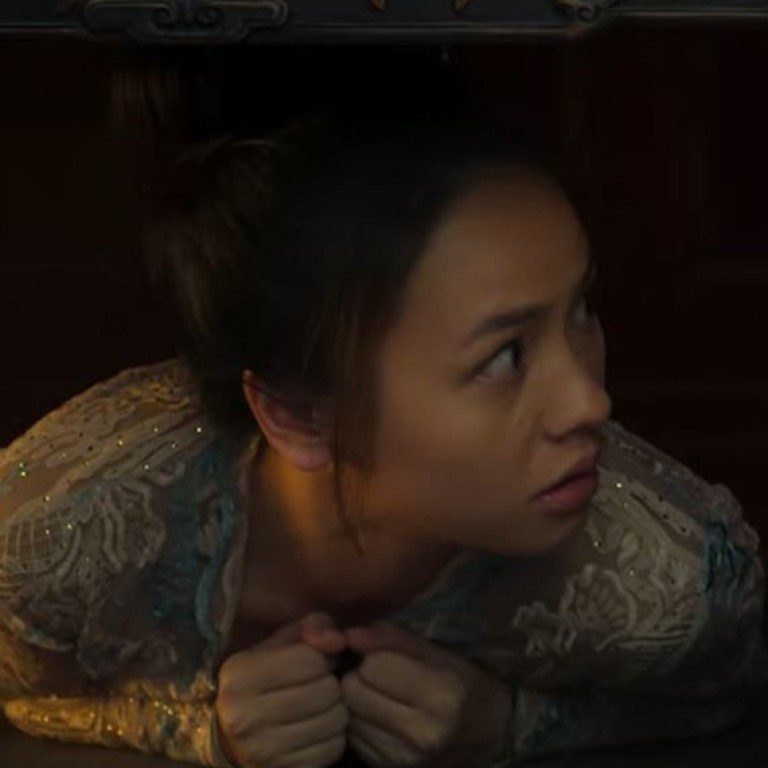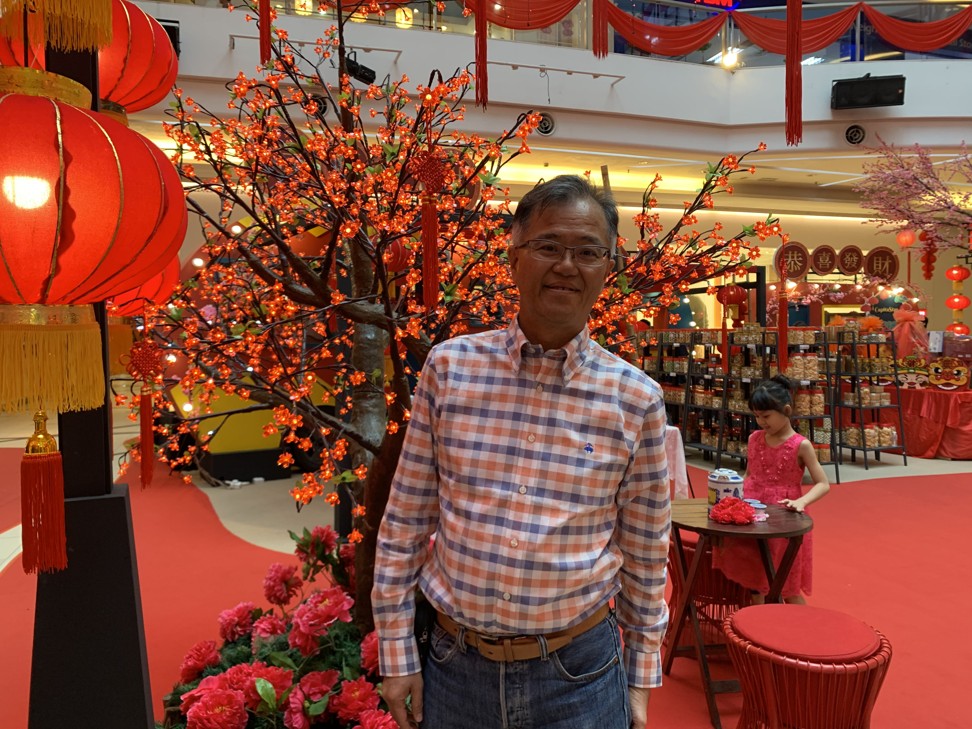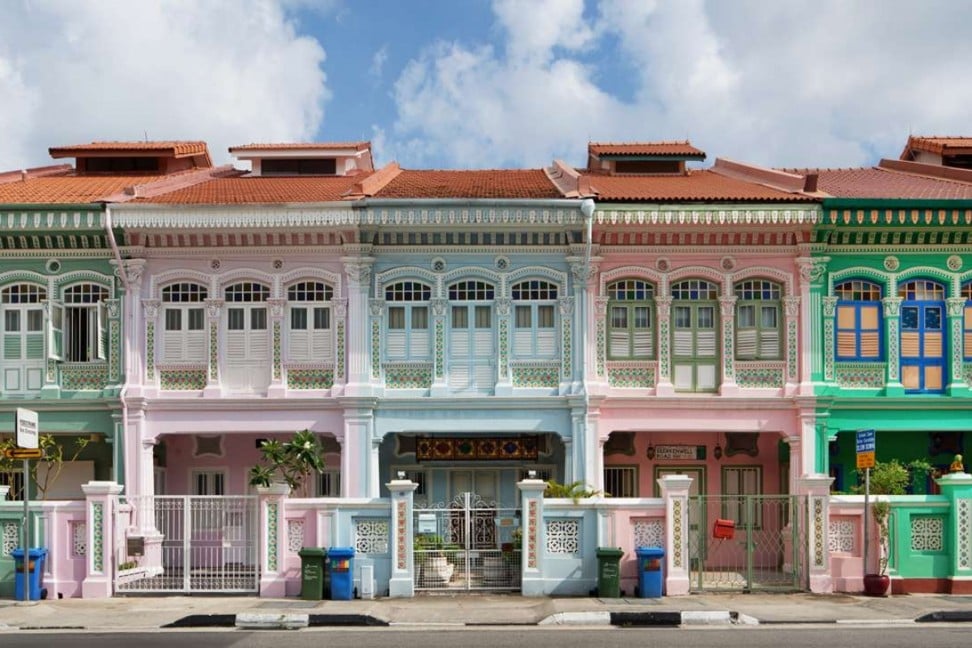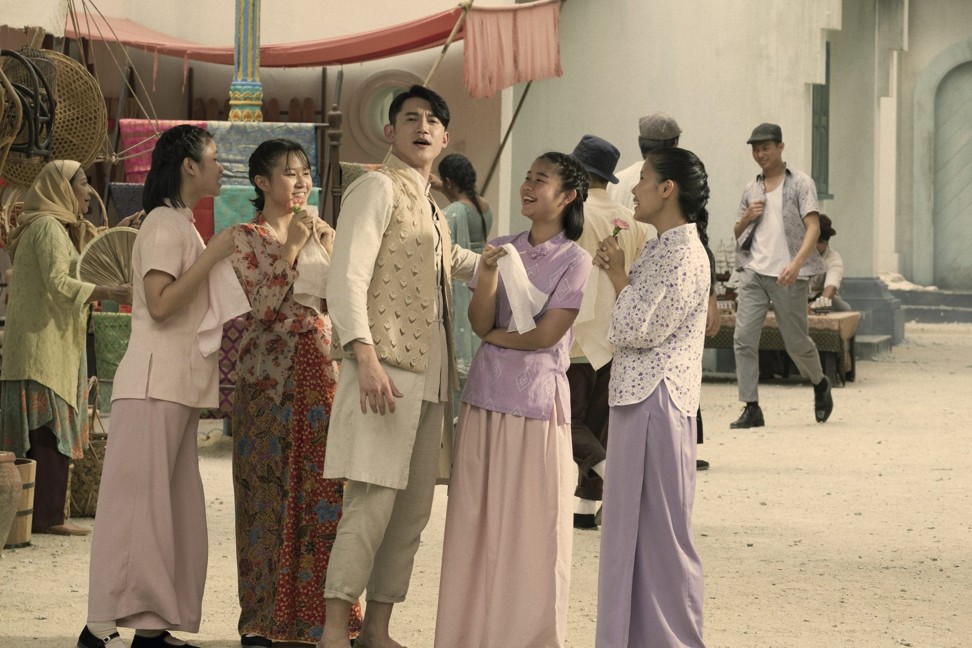
Don’t be fooled by Netflix: there’s more to the Chinese diaspora than Mandarin
- New series ‘The Ghost Bride’ airbrushes the wonderful hybridity that characterised colonial Malacca, a melting pot of cultures, faiths and languages
- Chinese may be tempted to embrace Mandarin but this runs the risk of erasing the rich diversity of Chinese civilisation
Netflix is celebrating Lunar New Year 2020 by releasing an original series, The Ghost Bride, set in 1890s Malacca, Malaysia’s historic entrepôt. It’s basically a schlocky ghost story: a young woman is invited to marry into a wealthy family to help her debt-ridden father. Here’s the catch: the groom is deceased, and his ghost enlists her to avenge his death.
“Most of the Babas are now English speaking,” Khoo Joo Ee wrote in her 1996 study “The Straits Chinese: A Cultural History”.
“Those of earlier generations were fluent in Malay, and although it may seem very strange now, in the last century few of the Babas spoke either Cantonese or Mandarin. However, during the era of re-Sinisation, around the time of the 1911 revolution in China, many Baba families learned Mandarin.”
The series is based on a novel by Yangsze Choo, who wrote in English. In her notes, she stated Chinese immigrants mostly spoke dialects such as Cantonese, Hokkien, Teochew, Hakka and Hainanese. One of the characters speaks three dialects and Malay. Choo resisted using the pinyin Mandarin Romanisation system for their names. Yet the show is almost entirely in Mandarin, even though a more authentic depiction would have had them speak in one of the Chinese dialects or even English.
Peranakan means “local born” and refers broadly to any historical immigrant group that assimilated with the indigenous culture of Malaya or Indonesia. There are Jawi Peranakan – Malay-speaking Indian Muslims – but the Chinese Peranakan were the most prominent. “Baba” and “Nyonya” are honorifics for male and female Chinese Peranakan.
Most of them claim descent from earlier Chinese immigrants who left the southern provinces of Fujian and Guangdong for Malacca, Penang and Singapore, hence the term “Straits Chinese”. Since most of them were men, they initially married local women, which did not usually require conversion to Islam then. The descendants of these pioneers became the Peranakan, whose culture was Malay-influenced.
As Chinese immigration increased, the Peranakan began to regard themselves as distinct from the more recent arrivals, referring to them latter as “Sinkeh” or “Sinkhek”, meaning “new guests”.
Moreover, some Peranakan aligned themselves with the British and Dutch colonial powers, so much so that those in the Straits were referred to as the “King’s Chinese”.
Others took part in the struggles for independence, with Peranakans such as Lee Kuan Yew, who did not openly acknowledge his identity, and Tan Cheng Lock becoming national and even regional heroes.
“Nyonya” cuisine dishes rely heavily on local ingredients – such as pongteh chicken, using gula melaka (palm sugar).
Also, Peranakan women created a unique, colourful “Nyonya Kebaya” variation from kebaya cotton cloth.

Chew Phye Keat, a 58-year old lawyer from Petaling Jaya, recalled his late mother, Ong Lim Neo, who was of Peranakan descent.
“I remember little domestic moments, like when she used to wear her sarong, fastened around the chest while doing housework and cooking, or of her speaking Baba Malay to her mother,” he says.
Phye Keat’s mother spoke a patois: Malay mixed with Hokkien words and phrases such as kamsiah for “thank you”.
Chinese Muslims: how Indonesia’s ‘minority within a minority’ celebrate Lunar New Year
Today however, Phye Keat’s links to Peranakan culture are mostly through his memories. After his mother moved from Malacca to Petaling Jaya to train to be a teacher, she converted to Christianity and raised him speaking English.
While he was able to speak Hokkien and Cantonese in his youth, his skills have declined. His 22-year old daughter, Li Ann, also a lawyer, can only speak English even though she had Mandarin tuition when she was four and studied it at school.

“She [her paternal grandmother] was getting old by the time I was of age to communicate with her,” Li Ann says. “I don’t feel as though I have the right to celebrate this culture, nor is it something that I widely tell people I identify with. It’s just part of my history.”
The Ghost Bride – which is a Malaysian-Taiwanese joint production – is not a documentary and the decision to use Mandarin was commercial, to appeal to a wider audience. However, the effect is one of homogenisation and the series suffers as a result. Some superficial aspects aside, it could have taken place literally anywhere in the Chinese-speaking world.
A more compelling approach would have been to capture the wonderful hybridity that characterised colonial Malacca, a melting pot of cultures, faiths and languages.

This is the paradox facing Chinese diaspora. By adopting Mandarin, they can connect to the vast Greater China market. However, this runs the risk of erasing the rich diversity of Chinese civilisation.
Language is political and will be politicised, including the Mandarin versus dialect dichotomy.
In Singapore, an aggressive, PAP-government sponsored “Speak Mandarin” campaign, which Lee Kuan Yew championed from 1979, sparked decades-long controversy and criticism both from non-Chinese and Chinese dialect speakers alike.
Wealthy Chinese in Singapore for Lunar New Year may spend the holiday buying luxury real estate
More recently, the ongoing Hong Kong unrest has seen Cantonese emerge as a symbol of protest against what the islanders regard as China’s encroachment on both their identity and their political and cultural autonomy.
The Peranakan experience is a rebuke to the idea the Chinese are monolithic. It would be a great shame if viewers come away from The Ghost Bride believing “all Chinese are the same” – they certainly aren’t and will never be.

